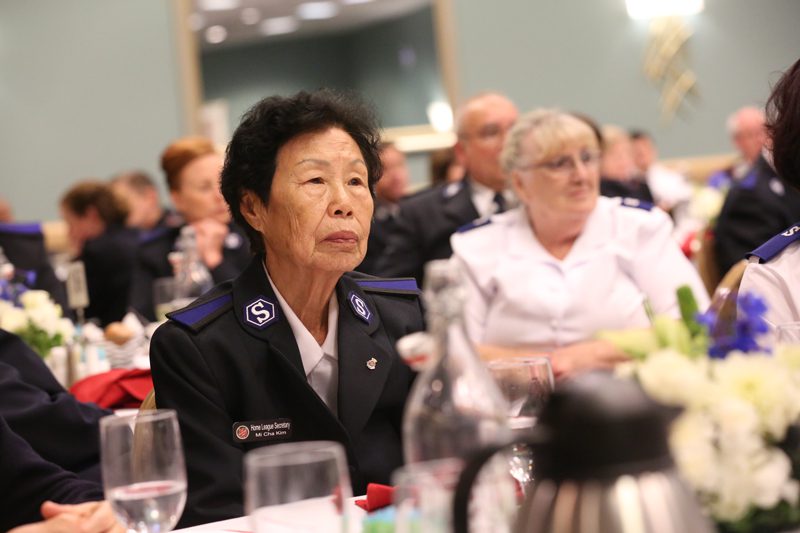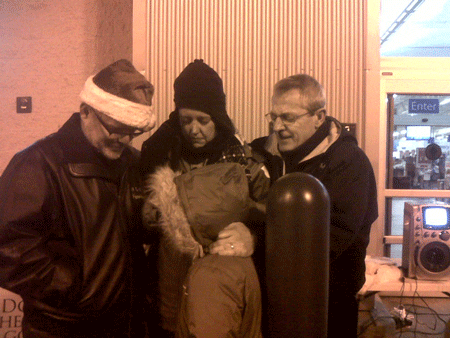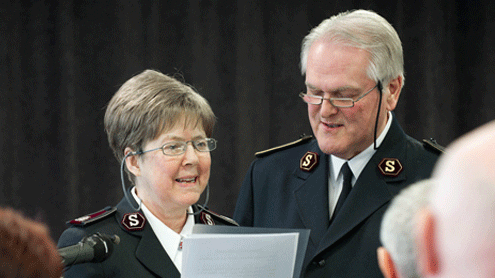by Robert Docter –
She’s a dumpster diver–somewhere between 35 and 60–hard to tell. She looks unkempt, but never filthy. She sleeps in her car with four dogs. I see her with them each time I run at the park. Often she’ll talk to the dogs and to herself. Rarely does she talk with anyone else. I don’t know how she gets gasoline for her car or food for herself and the dogs. I’ve ignored her as we’ve shared the broad expanse of the park for several years.
Her car, a mid-’60s Chevy station wagon, is jammed with what she finds–bottles, cans, paper, rugs, pie tins. She seems to be personally responsible for re-cycling everything in sight. Inside the car, I don’t see how there is even room for the dogs. Outside, plastic bags are stacked and tied to the car’s roof. They hang from the outside mirrors and door handles.
I find myself feeling very uncomfortable around people whose behavior might be described as unpredictable. Not having any idea what they might do leaves me feeling a little threatened. I once had an argument with a woman who had been physically challenging my children. I discovered quickly the woman was slightly disoriented, so I immediately collected my children and headed home. The woman ran from me yelling “Rape! Rape! Rape!” at the top of her lungs.
I have felt slightly “uncomfortable” around this “diver.” One morning, as I was stretching at the beginning of a run, I heard a different early morning dog walker express concern to a friend. She said she hadn’t seen “Jo” for several days. Eavesdropping, I discovered they were talking about the “diver.” Then I realized I hadn’t seen her either. I inquired of her further and learned the “diver’s” name–that she had a grown son–that she refuses help from anyone at anytime–that she has advanced degrees from a major University–and that she has held responsible positions in the past.
Suddenly Jo was no longer just a “diver” to me. She became a person. I wondered how she might be helped to deal with the issues and difficulties of her life. I didn’t have any answers. I sensed that she desired this reclusive life style. We had no connection. I had never tried to make one. But now, I had learned her name.
The next morning I spotted her as I rounded a corner on my run in the park. I said: “Mornin’ Jo.” She looked at me with a very questioning expression. I wasn’t a stranger to her. She had seen me regularly. By this time, I was past her but heard her say: “Mornin’.” This level of conversation continued for several weeks. A few times we talked about the dogs. The greetings became more lengthy. She never initiated any conversation.
Sometimes I raise my arms while running and shake my hands above my head to move the blood around a little. One morning recently I happened to do this as I was heading up a path. Jo stood on top of a nearby hill maybe 20 or 30 yards away. I hadn’t spotted her, but then I heard her voice yelling at me: “Hey Bob! What are you doing–praising God?”
I almost stopped running. Then, catching her eye while moving on, I said: “Yeah!” That was it. No more. Since then, she has initiated conversation with me on several occasions. We can even stand and talk as she investigates a dumpster, often commenting on “the stuff some people throw away.”
Jo, my neighbor in the park, has helped me form some definite conclusions. The first concerns the imposition of help. I believe it is ineffective and can be damaging. We cannot impose unsolicited assistance on anyone. Even God will not aid us without our asking. The second is the flip side of the first. We all need to be more skillful at making our needs known. Often, we go through life assuming that people somehow are aware of what we need and should deliver it. Nonsense. We must ask.
Yes, Jo is my neighbor. I must love her even though I find it difficult and a little threatening. The third conclusion is loving someone means accepting who and what that person is. Isn’t this the way God relates to us? Doesn’t he love us even in our desire to ignore him, in our self-determined quest of self deification? Granting someone the gift of freedom is the greatest gift available to us. It’s also the hardest to give. Fourth, I’ve concluded that love must be reciprocal. We cannot move in the expression of love faster than the other is willing to receive it. Our obligation is simply to relate. Fifth, Jo has illustrated to me that the challenge of Christian love resides in loving those who are different from us.
Got any Jo’s in your life?













